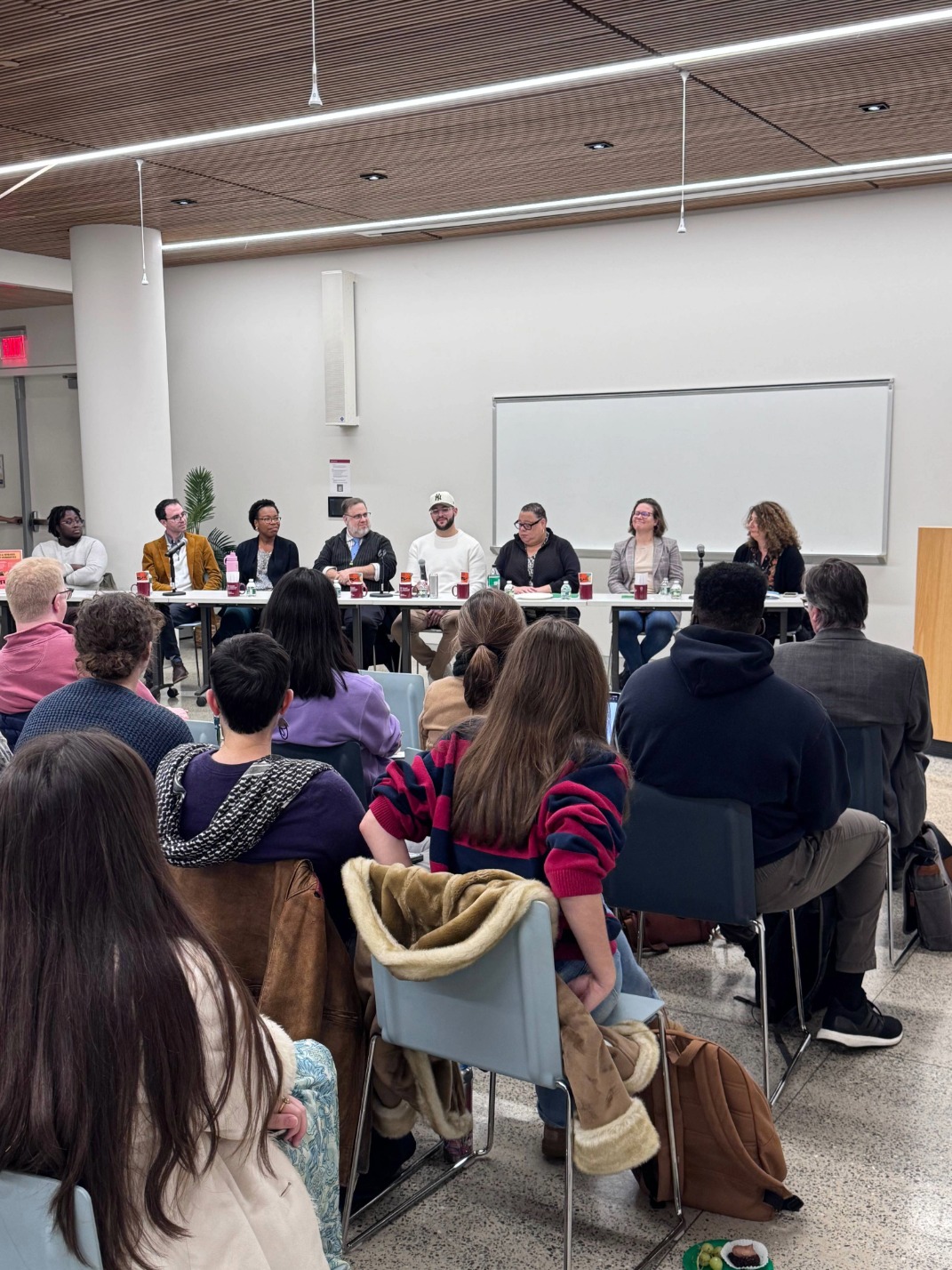Doing work in the humanities means telling stories and creating narratives about the communities around us. Public humanities, then, means creating access and aspiring to forge community pathways.
On the evening of Tuesday, November 18th, nearly 50 people gathered to hear reflections on “The Risks & Rewards of Public Humanities.” Organized by the Center for the Humanities at Temple, the English M.A. and Ph.D. Programs, with additional support from the Graduate English Development Fund, Temple University Libraries, and the Office of the Vice Provost for Research, the event brought together eight local public humanities professionals for a wide-ranging conversation on the challenges and possibilities facing this work. After Joe Lucia, Dean of Libraries made welcoming remarks, Laurie Zierer, Executive Director of PA Humanities, opened with a somber recollection of last April, when she woke up to a notice that the federal funding her organization was set to receive had been terminated by DOGE.
Michael Brix, Executive Director of Treehouse Books, offered the following metaphor: “We are all pushing the same boulder up a hill,” a reminder that those working in the humanities are in this together. The panel’s reflections moved from the fundamentals of sustaining humanities organizations, such as making payroll and supporting staff, to their broader goals of meeting community needs. CLA’s Heather Lewis-Weber noted that her work as Director of Community Engagement is focused on “making sure we are building up community,” which means ensuring that institutions “are giving back, not extracting resources.” As Tangie Wilson, Managing Director of Treehouse Books remarked, their organization is committed to “growing the next generation of thinkers and writers,” and their programming is intentionally built around that mission. In effect, doing public humanities work means not only recognizing community needs but becoming a hub, a catalyst for forging connections and building collaborative, enriching partnerships.
But when faced with never-ending requests, programming decisions can be downright excruciating. Dan Blank, Director of Public Programs for The Free Library Foundation, noted that “bandwidth and capacity are always limited,” which requires making difficult decisions about “who we are platforming” and ensuring that a diversity of voices—in the widest sense—guides programming priorities. Jamie Brunson, former Executive Director of First Person Arts, shared a deeply personal reflection of being called to support community members working through gun-related trauma. Despite knowing how much she was needed, Brunson observed that “sometimes the risks outweigh the capacity of the organization,” and explained that after decades of existence, First Person Arts was forced to furlough all employees because operational costs could no longer be met, even as they still had over a million dollars in funding dedicated to community events.
A critical moment in the conversation emerged when audience members asked how humanities organizations select board members and decide whether to accept external funding. Elizabeth Kimball, Director of Drexel’s University Writing Program, offered an example of working with Campbell’s Soup Company, an undeniable corporate titan, but one that plays a major role in combating food insecurity in Camden, NJ. In this case, she explained, the reward outweighs the risk. Like Kimball, panelists emphasized that to mitigate risk, organizations take time to get to know potential partners and stakeholders, comparing the process to courtship and marriage. These relationships, they noted, must be grounded in authenticity and a commitment to co-designing projects in ways that genuinely reflect community needs.
In closing the conversation, Oscar Almonte-Espinal, Director of Public Engagement for the Free Library Foundation, noted that one of the greatest risks in public humanities work is giving too much of yourself to the job, while also acknowledging the immense reward of knowing that we in the humanities have made a concrete difference.

